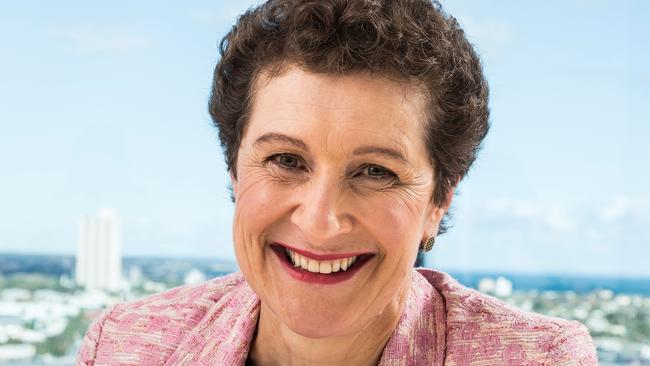Susan Pascoe named Principal Certification Advisory Board chairwoman
A new voluntary regime of certifying school principals aims to enhance their professional standing among the public.

Susan Pascoe hopes the new voluntary regime of certifying school principals will provide the community with the same levels of assurance that go with the professional accreditation of general practitioners and accountants.
“It will be that extra badge of recognition: this is someone who, not by word of mouth but through a rigorous process, has been identified as an exceptional practitioner, and therefore we can have confidence in their leadership and what’s happening in the school,’’ she says.
Pascoe, one of the three commissioners who served on the 2009 Victorian Bushfires Royal Commission, has been appointed as independent chairwoman of the Australian Principal Certification Advisory Board, which is managed by Principals Australia Institute. As such, she will work closely with the board, which will be made up of school leaders and others with regulatory experience, and will implement and oversee the principal certification process.
The aim is to lift the quality of education leadership, one of the most significant factors weighing on student results.
Pascoe’s five-year term as the inaugural commissioner for the Australian Charities and Not-for-profits Commission recently ended. She also has served as a commissioner at the State Services Authority in Victoria.
She brings an extensive education background to the role as a previous president of the Australian College of Educators, of which she is a life member. She was also chief executive of the Victorian Curriculum and Assessment Authority and chief executive of the Catholic Education Commission of Victoria.
PAI chief executive Paul Geyer says Pascoe’s background in education leadership and track record in providing executive oversight makes her ideal for the role.
“Principals Australia Institute is delighted to have been able to appoint such a respected figure with significant experience in the education sector to chair the certification advisory board,” he says.
PAI is a national organisation providing professional learning, leadership development and certification to principals and school leaders across government, Catholic and independent schools.
Identifying and recognising the work of principals is one piece of the mosaic of improving quality in schools. “The Australian Professional Standard for Principals sets out what principals are expected to know, understand and do to achieve in their work,’’ Pascoe says.
“It is presented as an integrated model that recognises three leadership requirements that a principal draws upon within five areas of professional practice.’’
Pascoe says a certification process tells the school and broader community that a principal is not only meeting or exceeding those standards but also high standards of leadership are expected. To achieve principal certification, principals must demonstrate the impact of their leadership on teacher efficacy, student achievement and whole school improvement in meeting profession-developed requirements and the Australian principal standard.
There are also five areas of professional practice for leadership requirements. These centre on: leading, teaching and learning; developing self and others; leading improvement innovation and change; leading the management of the school; and engaging and working with the community.
A group of principals who were part of the pilot in 2015 have undertaken the certification process this year. If successful, they will become the first certified practising principals nationwide.
“There is a reluctance among many younger people, even people at middle levels in schools, to take that next step because they see the wear and tear on the principal,’’ Pascoe says.
“We’ve got very high expectations of principals, they work huge hours to be able to fit it all in, and I think at least those who have gone through this process will have some formal recognition of all that.’’
The deadline for next year’s intake of principals for certification will be December 7. The process includes a face-to-face induction session on January 17 or February 21 next year. The second part will involve an online question-and-answer session on March 6, followed by an online forum on May 10.
There also will be webinars and other online forums.
Pascoe says principals need to provide evidence they are meeting the standards and their assessments are peer refereed.
The PAI has had a strong working relationship with the Australian Council for Educational Research.
The agreed standards were signed off by federal and state education ministers in 2011 but the profession owns the process by breathing life into the standards. PAI initiated development of principal certification in 2012, designing a national framework for certification of principals.
“If there wasn’t a formal empirically based certification process attached to that then it would be aspirational thinking and not much more,” Pascoe says.
The PAI’s work to put in place an independent, nationally consistent and professionally credible system is the step that gives the process real meaning, she says.
“Certification will offer education systems and the community the confidence that school leaders and principals are able to demonstrate the leadership required for schools in our fast-changing world. Formally recognising those principals and school leaders who attain certification standards will shine a light on the complexity and challenge involved in today’s demanding school leadership roles, as well as the skills and experience of the certified individuals.”
Pascoe is hopeful that during her two-year appointment she and her fellow board members will oversee a process that leads to greater recognition of the work of principals, which adds value to the profession and encourages others to become certified.


